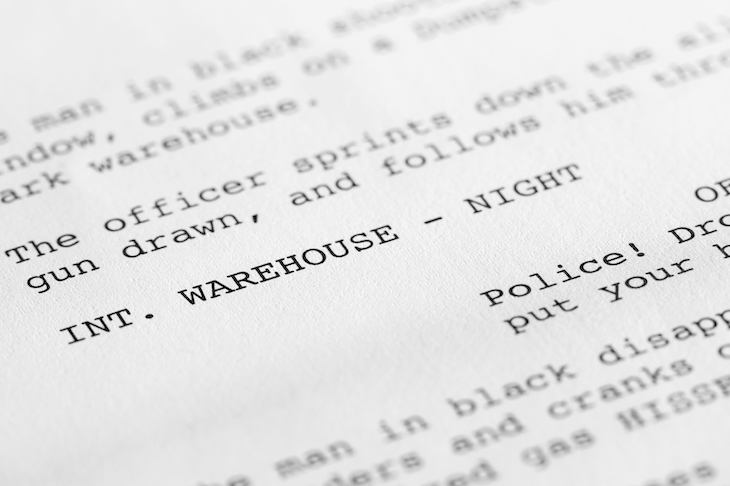Last year the BBC radio drama department received 3,797 scripts from hopeful authors, of which just 33 were recommended to BBC radio drama producers. I came across this sad statistic when I was well into my first attempt to write an hour-long radio drama set in a trench during the first battle of Ypres in 1914. My chances of hearing my poor little play performed on the radio were reduced from slight to negligible when I then read that the BBC will be accepting no more drama scripts until the end of the year; and from negligible to zero when I belatedly looked into The Way to Write Radio Drama, by William Ash, and realised how naive I had been to imagine I could master such a tricky genre straight off the bat.
My play was inspired initially by two pages of first-hand narrative written by a private of the 1st Gloucesters, which General Sir Anthony Heritage Farrar-Hockley GBE, KCB, DSO, MC included in Death of an Army (1967), his gripping history of that amazing battle, in which the British did to the Germans what the Germans did to the British 18 months later on the Somme. (Between the wars, 1st Ypres was known in Germany as ‘The Slaughter of the Innocents’.) Before plunging in, and for several months, I read one Great War memoir after another. I began with the more well-known accounts, such as The War the Infantry Knew by Captain J.C. Dunn, Old Soldiers Never Die by Frank Richards, With a Machine Gun to Cambrai by George Coppard, Into Battle by John Glubb, Six Weeks: The Short and Gallant Life of the British Officer in the First World War by John Lewis-Stempel, and David Jones’s marvellous prose poem ‘In Parenthesis’.
Not the least wonderful thing about these accounts is their literacy. Even working-class privates such as Frank Richards or George Coppard describe the horrors in simple, robust, unadorned English prose that one can only envy. After the war Robert Graves wrote a guide to writing English prose in which he stated that, ‘The writing of good English is a moral matter, as the Romans held that the writing of good Latin was’ — and these brave infantrymen’s accounts appear to confirm this, at first sight, outlandish claim. My immersion in these bloody narratives coincided with the emergence of the ‘#MeToo’ campaign, and the ratcheting up of the ‘safe space’ campaign in British and US universities. During the battle of the Somme, 30 million shells were fired by both sides into an area seven miles square, killing and wounding a million soldiers on both sides, the majority of them civilian volunteers. Talk about a safe space.
Then, at a party, during a conversation about the first world war, a Cambridge classics don asked me if I’d read Donald Hankey’s A Student in Arms. I had not, I said, and wrote the name on my hand. Hankey was a middle-class theology student when he enlisted as a ‘gentleman ranker’ in Kitchener’s Army. Recovering in England after being wounded in a futile charge at Ypres in which he lost many friends, he sent an essay to The Spectator called ‘Some Who Were Lost and Found’. The beautifully written piece is a meditation on the courage of the Kitchener Army recruits who in civilian life have nothing to live for, and no sustaining beliefs, but who can look death in the face with as much courage as the officers and gentlemen who command them, and who are soaked in the sustaining prejudices of their class. The Spectator editor at the time, John St Loe Strachey, published the unsolicited contribution anonymously, and because of its great success he published everything Hankey submitted until 1916, when Hankey changed his mind about the rightness of the war, and became pessimistic and angered by the conduct of the war. Two consequent essays were rejected by Strachey before Hankey was killed leading a hopeless attack on St Transloy in the later stages of the battle of the Somme. His last words to his platoon as he waved them forward were ‘If you are wounded, “Blighty”; if killed, the Resurrection!’
The essays, subsequently collected as A Student in Arms, sold in the hundreds of thousands. Donald Hankey’s strikes me as a remarkable English voice whose neglect is strange. I don’t know, perhaps the voice of a man with a Christian conscience in combination with a social conscience has become unpalatable or risible. His body was found then lost again during an enemy bombardment before it could be buried. His name is one of the 77,000 inscribed on Lutyens’s memorial to the missing of the Somme at Thiepval. The collected essays were published in such large numbers that they are easily obtainable. If my pathetic attempt at a radio drama results only in the by-product of discovering Donald Hankey’s wonderful A Student in Arms, the time won’t have been wasted.
Got something to add? Join the discussion and comment below.
Get 10 issues for just $10
Subscribe to The Spectator Australia today for the next 10 magazine issues, plus full online access, for just $10.
You might disagree with half of it, but you’ll enjoy reading all of it. Try your first month for free, then just $2 a week for the remainder of your first year.















Comments
Don't miss out
Join the conversation with other Spectator Australia readers. Subscribe to leave a comment.
SUBSCRIBEAlready a subscriber? Log in